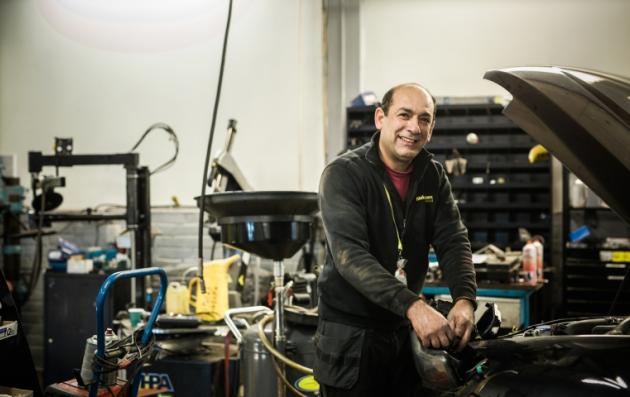Summary
The motto at the Department of labour market in the city of Trelleborg (SE) is that “you get what you ask for”. The city decided to see what would happen if it stopped asking regional trade and industry for general activities for unemployed people, and started asking for jobs instead.
Unemployed citizens need support to enter the labour market. In both 2015 and 2016, thanks to the city's collaboration with over 500 local and regional employers, one person per day leaves welfare support for a new job, or starts studies that will lead to employment.
The solutions offered by the good practice
Due to employers not finding skilled labour, the economy is not only sufficiently growing, we also see that with the age composition of the labour force, we have fewer workers paying for a welfare system with increasing costs for the elderly. People having trouble in establishing themselves on the labour market, among them foreign jobseekers with a shorter education, or young people lacking completion of upper secondary school, are sorely needed in the workforce to make sure that the welfare state doesn’t fail.
By using a coupling-system, where the city cooperates with the local employers, thus benefitting both the unemployed and the employers, we make sure that the gap between both is closed.
Different methods are used for different couplings; some people need more time to get the skills requested by the job, while others just need an introduction. In our couplings, we make sure both parties’ needs are met.
Building on the sustainable and integrated approach
Under the umbrella of the Kraftsamling Trelleborg project, we cooperate with local businesses to make sure that they are provided with the service they need, and find competent staff in order to grow.
In Kraftsamling, all employers have a prospective partner through which they can channel their CSR-work. Our objective is to make sure that unemployed gain employment, but this can only be obtained through meeting the needs of the individual employer.
Based on a participatory approach
The Kraftsamling Trelleborg good practice puts jobseekers and local businesses in contact, in order to make sure that firms are provided with the service they need, and find competent staff in order to grow. In Kraftsamling, all employers have a prospective partner through which they can channel their CSR-work.
Our objective is to make sure that unemployed people gain employment, but this can only be obtained through meeting the needs of the individual employer.
What difference has it made?
During 2015 and 2016, we have put one average person per day back to work (or studies leading to work), primarily due to our cooperation with the local and regional employers, under the auspices of not belonging to the labour force by the national employment agency. This is due to our belief that everyone can learn, and that companies need to be involved in this learning.
A taste of our model that gives effective results for the citizens of the city of Trelleborg:
- From control to personal responsibility and trust;
- From telephone hours to total availability;
- From a focus on rights to contributions to self-sufficiency;
- From care plan to establishment plan;
- From social services to efficient management of subsistence allowance;
- From waiting to visit today and decision tomorrow.
Since the last tent years, the trend in Sweden has been an increase in costs for welfare support. This trend has been the opposite in Trelleborg, with declining costs and an increase in employment.
Why should other European cities use it?
One of the current and future challenges for European cities is to make sure that all citizens are included in the labour market, and at the same time to avoid that companies’ growth is hindered by the lack of skilled labour. This current challenge will only grow more challenging, considering the fact that Europe has welcomed immigrants fleeing from war in the Middle East.
We are convinced that all European cities have good strategies for vocational training in schools, but we also believe that flexible ways of learning at a workplace give quicker results. One way of learning does not exclude the other, but one might be more useful in certain situations.
-
484_Trelleborg_GPsummary.pdf(PDF, 873Ko)

